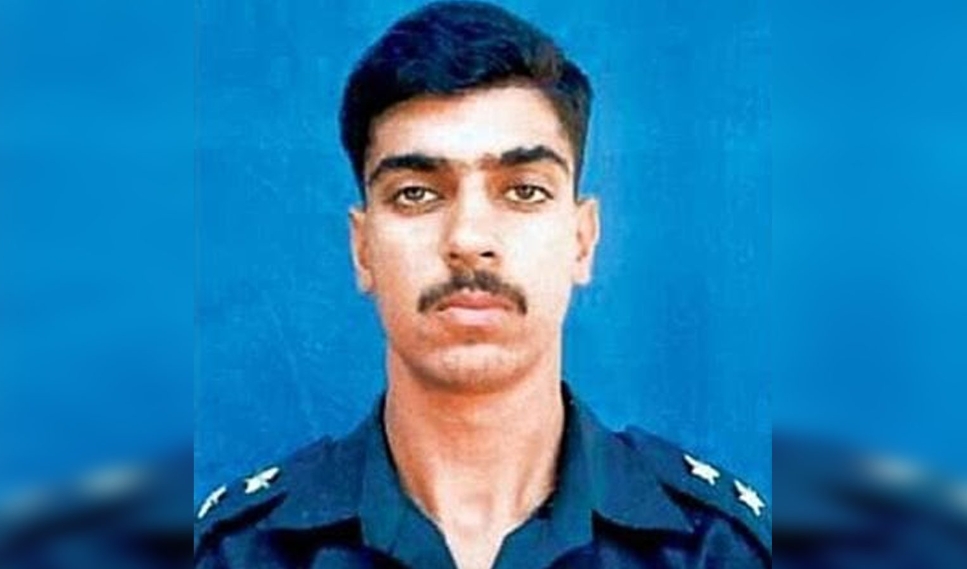Twenty-six years after Kargil War hero Captain Saurabh Kalia was brutally tortured and killed by the Pakistani forces, his father remains committed in his quest to drag Pakistan to the International Court of Justice (ICJ) for violations of the Geneva Convention.
On what would have been his 49th birthday today, the enduring legacy of Captain Kalia was brought to the fore again by his 78-year-old father Dr N N Kalia, as he fights for justice over his son’s brutal treatment in the custody of Pakistan.
Kalia, a retired senior scientist from the Institute of Himalayan Bioresource Technology (IHBT), says he has full faith in the country’s political leadership and judicial system and hopes those responsible for the heinous crime will be held accountable.
“His unmatchable martyrdom in this unique way awoke the whole sleepy nation, lit the patriotic fire in the country and had a catalytic effect on the entire armed forces,” recalls the father.
Lt Saurabh Kalia, belonging to the 4-Jat regiment, had gone with five soldiers for a reconnaissance mission in Kaksar in Kargil in the third week of May 1999. The team went missing and the first news of their disappearance was broadcast on Askardu radio in Pakistan-occupied Kashmir.
The bodies of Lt Saurabh, who was made captain posthumously, and his team — sepoys Arjun Ram, Banwar Lal, Bhikaram, Moola Ram and Naresh Singh — were handed over to India on June 9. The next day, on June 10, PTI broke the story about Pakistan’s tale of barbarism.
The bodies were without their vital parts, eyeballs gouged out and noses, ears and genitals chopped off.
This kind of ruthlessness had never been witnessed in the history of armed conflicts between the two countries and India had expressed its outrage over the mutilation and disfigurement of its army personnel and termed it a “violation of international conventions”.
Despite the passage of time, the family feels anything but alone. “People have given us so much love and respect,” the senior Kalia said while acknowledging the overwhelming support from across India and even abroad.
He said the family receives letters and calls from visitors expressing their eagerness to learn more about the Kargil martyr.
The museum in his memory has been established at their Palampur residence and it draws approximately 600-800 visitors annually, including many tourists who have heard of Captain Kalia’s story.
“Unknown people say that they have heard so much about Captain Kalia. Now that we have come here, it is good,” he said to highlight the lasting impact of his son’s sacrifice.
Captain Kalia’s younger brother, Vaibhav Kalia, a faculty member in Computer Sciences at Agriculture University, Palampur, also spoke of the unwavering public memory. “People have not forgotten their martyrs,” he says, noting the enthusiasm among children at the event.
Vaibhav Kalia’s own family is upholding Captain Kalia’s legacy. His elder son is pursuing a BSc in Agriculture and is involved in NCC, while his younger son, Vyomesh, harbours a keen interest in joining the armed forces and plans to appear for the NDA exam.
“I will be very happy if my two kids at least give an honest try to join the armed forces,” he said.
Captain Kalia’s mother, though deeply private in her grief, remains “very brave” and immensely proud of her son, according to Vaibhav.
Before leaving for his duty, Capt Kalia uttered his prophetic last words to his mother over phone “Maa tum dekhna ek din aisa kaam kar jaunga, ki saari duniya mein mera naam hoga (Mother, you will see one day I will do such a deed that the whole world will acknowledge that)”.
This promise, tragically fulfilled through his ultimate sacrifice, is sustained not only by his grieving family and the consistent tributes from the Indian Army but also by a continuous stream of visitors to the family’s dedicated museum.
Although the pursuit of justice for his handling in Pakistani custody is still a complicated diplomatic issue, the Kalia family derives huge solace from the unflinching public love and admiration, guaranteeing Captain Kalia’s tale of bravery and nationalism continues to motivate fresh generations, including his nephews who dream of becoming members of the armed forces.
Kalia had filed a petition in 2012 under Article 32 of the Constitution (the right to constitutional remedies, specifically the right to move the Supreme Court for the enforcement of fundamental rights). He had requested a directive to the government to seek proper legal redress, including approaching the International Court of Justice, against Pakistan for the heinous violations of the Geneva Convention.
The Geneva Convention talks about the treatment of Prisoners of War under the rights and protections POWs which includes humane treatment, specifies conditions of detention, and providing food, clothing and medical care. The convention also prohibits torture, violence, and other forms of mistreatment.
The petition also pointed out that Captain Kalia and his men suffered more than two weeks of unparalleled brutal torture before their bodies were transferred on June 9, 1999, a barbarism attested by the postmortem report of June 11, 1999.
In spite of the unimaginable suffering, they did not crack, displaying patriotism, strength, courage and perseverance that still makes the whole nation proud. (Agencies)







